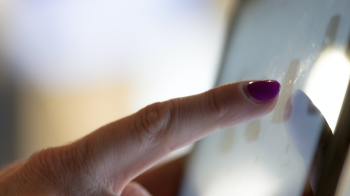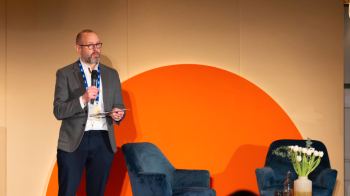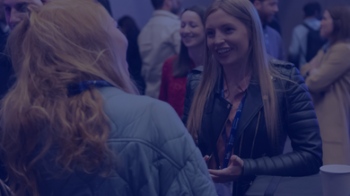How does Real_Living relate to neuroscience
Posted on Thursday 20 January 2022 | Heather Andrew
Heather Andrew, CEO of Neuro-Insight UK, gives her thoughts on the IAB’s recent Real_Living research, and how it relates to the world of consumer neuroscience.
View the Real_living research here
The recent Real_Living research carried out by the IAB delivered new evidence and thinking about how we interact with screens in our homes, leading to some compelling conclusions. Thinking about this from the brain’s point of view, what immediately resonated were two findings that strongly complement evidence emerging from the world of consumer neuroscience.
The myth of multi-tasking
The sub-title is stolen from a paper written by Christine Rosen for The New Atlantis in 2008, where she explores what we mean by multi-tasking and concludes that we don’t really do any such thing. When our attention is divided, what our brains actually do is switch very rapidly between one task and another. This echoes the conclusion in the IAB report that “instead of multi-screening, people are switch-screening, quickly jumping between screens and tasks.” It has also been borne out by our own commercial studies, which suggest that viewers’ switching behaviour isn’t about constant, rapid changes of focus, but rather reflects an interactive relationship between different screen types.
Television and second screens
The Real_Living findings concerning the relationship between TV and second screen interaction also echoed conclusions from our own research. We too have seen how second screening is fairly evenly distributed across programming and advertising content, and have also found that spikes of engagement response tend to occur at the moments when viewers engage with a second screen. Specifically, these findings reflect work that Neuro-Insight did in Australia with Channel 7 and MEC, looking at multi-screen activity involving social media usage during a commercial TV programme.
This study brought an interesting further dimension, in that it showed how second-screening involving social media can actually enhance viewers’ engagement with a television programme, to the benefit of both. From our brain’s perspective, when we use social media to comment on or share something about a TV show, we effectively reinforce our mental commitment to it, raising the level of response when we go back into the show.
The benefit of holistic thinking
The takeout for me from the Real-Living research is that media owners and planners can benefit from taking a holistic view across all screen experiences. Different screens elicit different brain states and campaigns that fine-tune messages to the role of each screen stand to gain considerable advantage. Above and beyond this, there’s a benefit to a big picture view. Our brains work by association and look for links and patterns. Campaigns that set out to create and reinforce these by linking messages across media and encouraging an interplay between them, are likely to benefit; creating links between screen messages works better for everyone.
About Neuro-Insight
Neuro-Insight is a market research company that uses unique brain-imaging technology to measure how the brain responds to communications. It is the only company in the world licensed to use this patented technology, enabling the measurement of second by second changes in brain activity. Neuro-Insight delivers unique insights into how a piece of design or advertising is affecting people at both a rational and an emotional level.
Related content
Ad-supported digital services are worth £14,600 a year to UK households
Learn moreDigital advertising’s share of market hits 75%
Learn moreDigital ad spend resilient in face of challenging 2022 as market grows 11% to £26.1bn
Learn more10 questions buyers of attention measurement should be asking - and why they’re important
Learn more
Rediscover the joy of digital advertising
Champion connections instead of clicks. Capture audiences' imaginations, not just their attention. Boldly find your own beat instead of letting tech set the pace. It’s time to rediscover the joy of digital.



